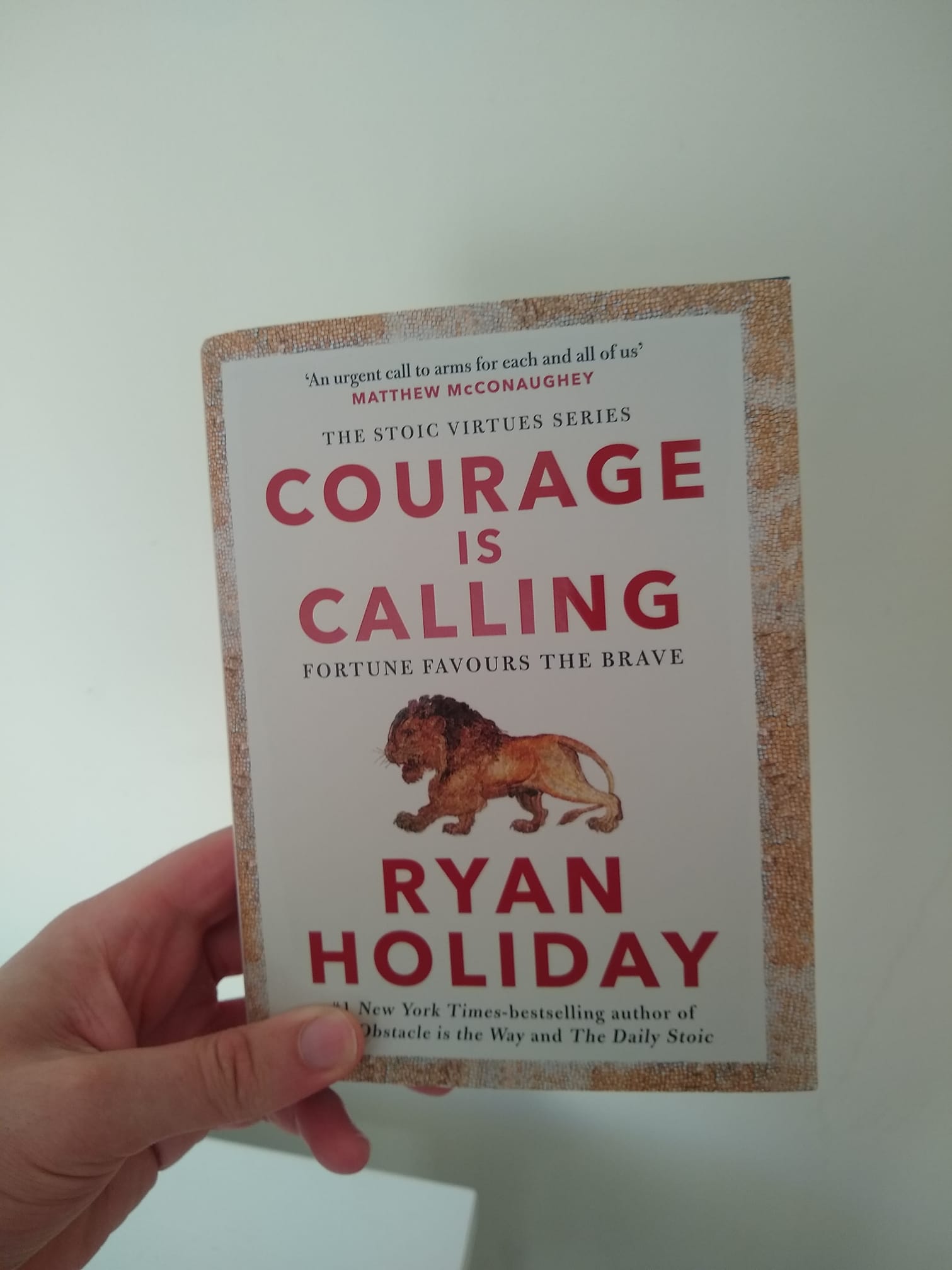Ryan Holiday is one of the most well-known names in Stoicism and mainstream philosophy books, with his approach to explaining Stoic precepts striking a great balance between relatability and tradition. Holiday’s latest work, Courage Is Calling: Fortune Favours The Bold, continues his path of writing inspirational books that will resonate for years to come.
The first book in a series that covers the four Stoic virtues of courage, temperance, wisdom and justice, Courage Is Calling dives into the backbone of Stoicism and highlights people who’ve truly extolled the virtue.
Showcasing physical and moral courage
“A nation should have brave soldiers (physical courage) and wise statesmen (moral courage). One fights the battles, the other cultivates the relationships and policies that reduce their necessity. We need generals and conscientious objectors, because both are courageous warriors in their own way, fighting for important causes.”
One of the key themes of the book is the distinction between physical and moral courage. Physical courage is the act of running into a burning building. It’’s fighting side by side with your fellow men and women in the trenches. Moral courage is about taking a stand against overwhelming odds. Or it’s smaller things like being the one to speak the truth to your boss, about defending a colleague or having the bravery to say a kind word when a complete stranger needs it.
Holiday provides many examples of courage both physical and moral across three themes of fear, courage and heroism. The idea is that courage begins from a place of fear and then morphs into the ultimate goal of becoming a hero.
“All growth is a leap in the dark. If you’re afraid of that, you’ll never do anything worthwhile. If you take counsel of your fears, you’ll never take that step, make that leap. The times you could have said something. The bets we should have placed. The people we might have met. The lessons that would have been learned. The battles that were never won.”
Exemplars of courage
The key figures of the book include Florence Nightingale, who resisted her call to courage for several years out of fear that she wasn’t fitting the path her family had laid out for her. Ultimately, she overcame her reservations and became a pioneering face of medicine.
There was Frank Serpico, the detective who exposed police corruption in the NYPD during the 1960s and 1970s. Serpico stood alone against an entire organisation that he’d believed in. That he’d devoted his life too and that he felt compelled to out for its gross misconduct.
Holiday also tells the story of Serpico’s mother, who went into labour on the trip to America and was faced with working alone while she waited for her husband to follow her over from Italy. Perhaps her resilience also informed her son’s tenacity and shaped him into the man he became.
Another of history’s exemplars of courage is Frederick Douglass, a black slave who took action against an abusive overseer Edward Covey. Douglass fought back against Covey and eventually won a kind of moral freedom by choosing to stand up for himself.
And yet this phenomenal act may not have occurred if Douglass hadn’t seen the whipping of a slave called Nelly when he was a boy. Nelly fought tooth and nail against her oppressor and though her skin tore, her spirit remained unbreakable.
Holiday weaves these stories of bravery, defiance and grit together with great respect. He presents them as actions to be followed instead of theory to be read.
In the afterword, the author details his own struggles with courage during his time at American Apparel and his experiences with Dov Charney. Holiday admits that he hasn’t always been as courageous as he should be and that drives home the point of the book.
Courage is something to be done in the moment and something to be cultivated. It’s learning to apply it as a kind of muscle memory and use it in tandem with the other Stoic virtues to truly live a life worth living.
